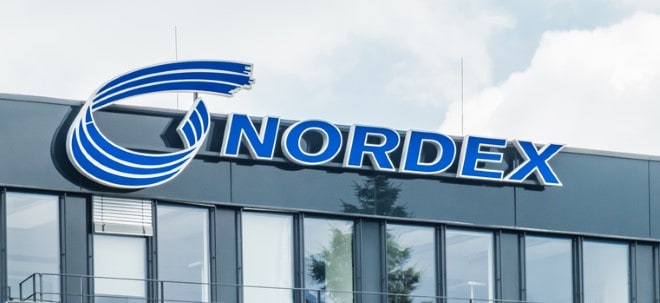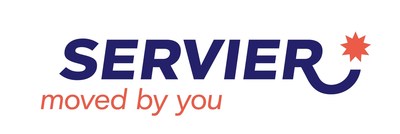Servier Announces Positive Data from Long-Term Follow-Up Analysis of the Phase 3 AGILE Trial of TIBSOVO® (ivosidenib) in IDH1-mutated Acute Myeloid Leukemia
- Long-term efficacy and safety results published in Blood Advances continue to demonstrate the sustained survival benefit of adding TIBSOVO to azacitidine in IDH1-mutated AML
- Data support the use of TIBSOVO plus azacitidine as a standard of care for treating intensive chemotherapy-ineligible patients with IDH1-mutated AML
BOSTON, July 28, 2025 /PRNewswire/ -- Servier today announced that Blood Advances published long-term data from the Phase 3 AGILE trial evaluating TIBSOVO® (ivosidenib) in combination with azacitidine versus placebo-azacitidine in patients with newly diagnosed mutant isocitrate dehydrogenase 1 (mIDH1) acute myeloid leukemia (AML) who were unfit to receive intensive chemotherapy. The post-hoc analysis reports positive long-term follow-up results from the pivotal Phase 3 AGILE trial and continues to demonstrate the sustained survival benefit reported in the previous analysis published in the New England Journal of Medicine (NEJM).
"The clear and robust clinical benefit demonstrated by these long-term analyses – including prolonged overall survival and hematologic recovery – support TIBSOVO as a standard of care treatment for patients with IDH1-mutated AML," said Susan Pandya, M.D., Vice President Clinical Development and Global Head of Oncology LS/LCM, Servier. "These data are a testament to Servier's industry-leading research in IDH1-mutated cancers, including AML, and demonstrate our steadfast commitment to improving outcomes for patients."
As of data cutoff in June 2022, median follow-up was 28.6 months. Key findings from the newly published analysis include:
- Median overall survival (OS) was significantly longer in patients treated with the TIBSOVO combination (29.3 months; 95% CI, 13.2 - not reached) than placebo-azacitidine (7.9 months; 95% CI, 4.1-11.3; hazard ration [HR]=0.42 [0.27, 0.65]; p<.0001).
- Hematologic recovery was generally faster and lasted longer in patients in the TIBSOVO arm compared to placebo-azacitidine. Conversion to transfusion independence was more common with TIBSOVO (53.8%) than placebo-azacitidine (17.1%; p=.0004).
- Ten (30.3%) of the 33 molecular measurable-residual disease (MRD)-evaluable patients in the TIBSOVO arm converted to an MRD-negative response by Day 1 of Cycle 14, all of whom had a complete response (CR). Seven (70%) of these patients converted to an MRD-negative response by Day 1 of Cycle 7. Of the 23 patients who remained MRD-positive, 19 had a CR and four had a CR with incomplete hematologic recovery (CRi). Two patients (20%) had an MRD-negative response in the placebo-azacitidine arm.
- The long-term safety profile of TIBSOVO with azacitidine was consistent with previously reported data. The most commonly reported Grade ≥3 hematologic adverse events (AEs) were anemia (26.4%), neutropenia (30.6%), and febrile neutropenia (27.8%). The most common Grade ≥3 nonhematologic AEs were electrocardiogram QT prolonged (11.1%), pneumonia (22.2%), nausea, (2.8%), hypokalemia (2.8%), and pyrexia (2.8%). There were no new or unexpected safety signals or additional treatment discontinuations due to AEs compared with the primary analysis.
"Long-term results from the AGILE trial underscore the power of TIBSOVO to improve outcomes for patients with IDH1-mutated AML unfit for intensive chemotherapy, a group who historically has had a poor long-term prognosis," said Hartmut Döhner, MD, Professor of Medicine and Director of the Department of Internal Medicine III at the University Hospital Ulm in Germany and Director of the National Center for Tumor Diseases SouthWest (NCT-SW; Ulm site). "These results continue to emphasize the importance of early systematic genetic testing to guide treatment selection for patients – which may lead to improved overall survival rates and a reduction in the risk of death as seen in this study."
TIBSOVO was approved by the U.S. Food and Drug Administration (FDA) in combination with azacitidine for the treatment of patients with newly diagnosed IDH1-mutated AML in adults 75 years or older, or who have comorbidities that preclude use of intensive induction chemotherapy, in May 2022 under Priority Review. The supplemental New Drug Application (sNDA) for TIBSOVO was reviewed by the FDA under its Real-Time Oncology Review (RTOR) pilot program, which aims to ensure that safe and effective treatments are available to patients as early as possible.1
Media contact
Sara Noonan: sara.noonan@servier.com I Tel. +1 857 262 3855
About Servier Pharmaceuticals in the U.S.
As the U.S. affiliate of the Servier Group, Servier Pharmaceuticals is focused on delivering transformative oncology and neurology medicines that fill a critical need for patients who are underserved by current therapies.
Since opening its headquarters in Boston, U.S., in 2018, Servier Pharmaceuticals quickly became a leader in cancer care and is taking bold steps to build a powerful portfolio of precision therapeutics for patients living with cancer and neurological conditions.
Governed by a non-profit foundation, Servier Group's private corporate governance enables the company to combine its resources and global network with cutting-edge science and creativity to develop tailored solutions that drive meaningful progress for patients.
Servier is actively seeking alliances, partnerships and acquisitions across all stages of oncology and neurology research and development to accelerate the delivery of innovative treatments to patients as part of its trailblazing One Innovation Engine R&D strategy.
Servier Pharmaceuticals has been named one of the Best Places to Work by The Boston Business Journal for four consecutive years. For more information about Servier, visit Servier.us and follow Servier on LinkedIn.
About the AGILE Phase 3 AML Trial (NCT03173248)2
The AGILE trial is a global, Phase 3, multicenter, double-blind, randomized, placebo-controlled clinical trial designed to evaluate the efficacy and safety of TIBSOVO in combination with azacitidine compared with placebo in combination with azacitidine, in adults with previously untreated IDH1-mutated acute myeloid leukemia (AML) who are not candidates for intensive chemotherapy (≥75 years old or who have comorbidities that preclude the use of intensive induction chemotherapy). The study's primary endpoint is event-free survival (EFS), defined as the time from randomization until treatment failure, relapse from remission, or death from any cause, whichever occurs first. Treatment failure is defined as failure to achieve complete remission (CR) by Week 24.
Key secondary endpoints included CR rate, defined as the proportion of participants who achieve a CR; overall survival (OS), defined as the time from date of randomization to the date of death due to any cause; CR and complete remission with partial hematologic recovery (CRh) rate, defined as the proportion of participants who achieve a CR or CRh; and objective response rate (ORR), defined as the rate of CR, CR with incomplete hematologic recovery (CRi) (including CR with incomplete platelet recovery [CRp]), partial remission (PR), and morphologic leukemia-free state (MLFS).
About Acute Myeloid Leukemia
Acute myeloid leukemia (AML) a cancer of blood and bone marrow characterized by rapid disease progression, is the most common acute leukemia affecting adults, with approximately 20,000 new cases in the U.S., and 43,000 cases in Europe each year.3,4 AML incidence significantly increases with age, and the median age of diagnosis is 69.3 The five-year survival rate is approximately 31.9%.3 For 6 to 10 percent of AML patients, the mutated IDH1 enzyme blocks normal blood stem cell differentiation, contributing to the genesis of acute leukemia.5
TIBSOVO IMPORTANT SAFETY INFORMATION AND INDICATION FOR U.S. PATIENTS
INDICATIONS
TIBSOVO is indicated for patients with a susceptible isocitrate dehydrogenase-1 (IDH1) mutation as detected by an FDA-approved test with:
Newly Diagnosed Acute Myeloid Leukemia (AML)
- In combination with azacitidine or as monotherapy for the treatment of newly diagnosed AML in adults 75 years or older, or who have comorbidities that preclude use of intensive induction chemotherapy
Relapsed or Refractory AML
- For the treatment of adult patients with relapsed or refractory AML
Relapsed or Refractory Myelodysplastic Syndromes (MDS)
- For the treatment of adult patients with relapsed or refractory myelodysplastic syndromes
Locally Advanced or Metastatic Cholangiocarcinoma
- For the treatment of adult patients with locally advanced or metastatic cholangiocarcinoma who have been previously treated
IMPORTANT SAFETY INFORMATION
WARNING: DIFFERENTIATION SYNDROME IN AML AND MDS |
WARNINGS AND PRECAUTIONS
Differentiation Syndrome in AML: Differentiation syndrome is associated with rapid proliferation and differentiation of myeloid cells and may be life-threatening or fatal.
Symptoms of differentiation syndrome in patients treated with TIBSOVO included noninfectious leukocytosis, peripheral edema, pyrexia, dyspnea, pleural effusion, hypotension, hypoxia, pulmonary edema, pneumonitis, pericardial effusion, rash, fluid overload, tumor lysis syndrome and creatinine increased.
If differentiation syndrome is suspected, initiate dexamethasone 10 mg IV every 12 hours (or an equivalent dose of an alternative oral or IV corticosteroid) and hemodynamic monitoring until improvement. If concomitant noninfectious leukocytosis is observed, initiate treatment with hydroxyurea or leukapheresis, as clinically indicated. Taper corticosteroids and hydroxyurea after resolution of symptoms and administer corticosteroids for a minimum of 3 days. Symptoms of differentiation syndrome may recur with premature discontinuation of corticosteroid and/or hydroxyurea treatment. If severe signs and/or symptoms persist for more than 48 hours after initiation of corticosteroids, interrupt TIBSOVO until signs and symptoms are no longer severe.
QTc Interval Prolongation: Patients treated with TIBSOVO can develop QT (QTc) prolongation and ventricular arrhythmias. Concomitant use of TIBSOVO with drugs known to prolong the QTc interval (e.g., anti-arrhythmic medicines, fluoroquinolones, triazole anti-fungals, 5-HT3 receptor antagonists) and CYP3A4 inhibitors may increase the risk of QTc interval prolongation. Conduct monitoring of electrocardiograms (ECGs) and electrolytes. In patients with congenital long QTc syndrome, congestive heart failure, electrolyte abnormalities, or those who are taking medications known to prolong the QTc interval, more frequent monitoring may be necessary.
Interrupt TIBSOVO if QTc increases to greater than 480 msec and less than 500 msec. Interrupt and reduce TIBSOVO if QTc increases to greater than 500 msec. Permanently discontinue TIBSOVO in patients who develop QTc interval prolongation with signs or symptoms of life-threatening arrhythmia.
Guillain-Barré Syndrome: Guillain-Barré syndrome can develop in patients treated with TIBSOVO. Monitor patients taking TIBSOVO for onset of new signs or symptoms of motor and/or sensory neuropathy such as unilateral or bilateral weakness, sensory alterations, paresthesias, or difficulty breathing. Permanently discontinue TIBSOVO in patients who are diagnosed with Guillain-Barré syndrome.
ADVERSE REACTIONS
- In patients with AML, the most common adverse reactions including laboratory abnormalities (≥25%) are leukocytes decreased, diarrhea, hemoglobin decreased, platelets decreased, glucose increased, fatigue, alkaline phosphatase increased, edema, potassium decreased, nausea, vomiting, phosphate decreased, decreased appetite, sodium decreased, leukocytosis, magnesium decreased, aspartate aminotransferase increased, arthralgia, dyspnea, uric acid increased, abdominal pain, creatinine increased, mucositis, rash, electrocardiogram QT prolonged, differentiation syndrome, calcium decreased, neutrophils decreased, and myalgia
- In patients with MDS, the most common adverse reactions including laboratory abnormalities (≥25%) are creatinine increased, hemoglobin decreased, arthralgia, albumin decreased, aspartate aminotransferase increased, fatigue, diarrhea, cough, sodium decreased, mucositis, decreased appetite, myalgia, phosphate decreased, pruritus, and rash
- In patients with cholangiocarcinoma, the most common adverse reactions (≥15%) in patients with cholangiocarcinoma are fatigue, nausea, abdominal pain, diarrhea, cough, decreased appetite, ascites, vomiting, anemia, and rash. The most common laboratory abnormalities (≥10%) in patients with cholangiocarcinoma are hemoglobin decreased, aspartate aminotransferase increased, and bilirubin increased
DRUG INTERACTIONS
Strong or Moderate CYP3A4 Inhibitors: Reduce TIBSOVO dose with strong CYP3A4 inhibitors. Monitor patients for increased risk of QTc interval prolongation.
Strong CYP3A4 Inducers: Avoid concomitant use with TIBSOVO.
Sensitive CYP3A4 substrates: Avoid concomitant use with TIBSOVO.
QTc Prolonging Drugs: Avoid concomitant use with TIBSOVO. If co-administration is unavoidable, monitor patients for increased risk of QTc interval prolongation.
LACTATION:
Advise women not to breastfeed.
Please see Full Prescribing Information, including BOXED WARNING for AML and MDS patients
Disclosures
This release contains general information about the Servier Group and its entities (hereinafter "Servier and its Affiliates") and is intended for informational purposes only. The information is thought to be reliable; however, Servier and its Affiliates make no representation as to the accuracy or completeness of the information contained herein or otherwise provided and accept no responsibility or liability, in contract, in tort, in negligence, or otherwise, should the information be found to be inaccurate or incomplete in any respect.
Servier and its Affiliates are not acting as an advisor to the recipient of this information, and the ultimate decision to proceed with any transaction rests solely with the recipient of this information. Therefore, prior to entering into any proposed transaction, the recipient of this information should determine, without reliance upon Servier or its Affiliates, the economic risks and merits, as well as the legal, tax, and accounting characterizations and consequences, of the transaction and that it is able to assume these risks.
This statement also contains forward-looking statements that are subject to varying levels of uncertainty and risk. Investigational new drugs and indications are subject to further scientific and medical review and regulatory approval. They are not approved for use by the FDA.
Any reliance placed on this document is done entirely at the risk of the person placing such reliance. The information contained in this document is neither an offer to sell nor the solicitation of an offer to enter into a transaction.
The content of this document is a summary only, is not complete, and does not include all material information about Servier and its Affiliates, including potential conflicts of interest.
To the maximum extent permitted by applicable laws and regulations, Servier and its Affiliates disclaim all representations, warranties, conditions and guarantees, whether express, implied, statutory or of other kind, nor does it accept any duty to any person, in connection with this document. Without prejudice to the generality of the foregoing, Servier and its Affiliates do not warrant or represent that the information or opinions contained in this document is accurate or complete.
To the maximum extent permitted by applicable laws and regulations, Servier and its Affiliates shall not be liable for any loss, damage or expense whatsoever, whether direct or indirect, howsoever arising, whether in contract, tort (including negligence), strict liability or otherwise, for direct, indirect, incidental, consequential, punitive or special damages arising out of or in connection with this document, including (without limitation) any course of action taken on the basis of the same. The estimates, strategies, and views expressed in this document are based upon past or current data and information and are subject to change without notice.
References
![]() View original content to download multimedia:https://www.prnewswire.com/news-releases/servier-announces-positive-data-from-long-term-follow-up-analysis-of-the-phase-3-agile-trial-of-tibsovo-ivosidenib-in-idh1-mutated-acute-myeloid-leukemia-302513961.html
View original content to download multimedia:https://www.prnewswire.com/news-releases/servier-announces-positive-data-from-long-term-follow-up-analysis-of-the-phase-3-agile-trial-of-tibsovo-ivosidenib-in-idh1-mutated-acute-myeloid-leukemia-302513961.html
SOURCE Servier Pharmaceuticals


